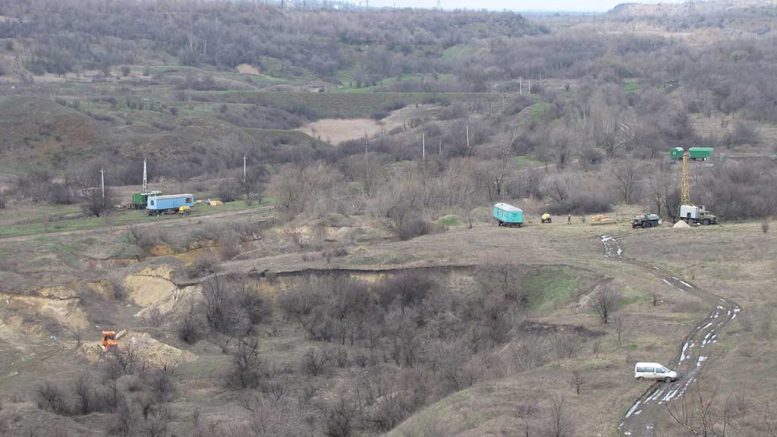A preliminary economic assessment of Black Iron’s (TSX: BKI) Shymanivske project in the Ukraine outlines a post-tax net present value at a 10% discount rate of US$1.66 billion and a 36.1% internal rate of return for a phased build of the high-grade iron ore project, 330 km southeast of Kiev.
In the first phase, US$435.8 million would be spent on developing the mine, concentrator and related infrastructure tie-ins to produce an initial 4 million tonnes per year of 68% iron concentrate.
In the second phase, construction of which would start in year three, another US$312.2 million in capex would be spent to expand the operation to 8 million tonnes per year.
Capex for both phase one and phase two can be repaid in just under three years, the study found.
By building in phases, the company can use cash flow to help pay for construction of the second phase, which should reduce dilution and project financing risks.
The capital cost estimates exclude sustaining capital costs over the 20-year mine life of US$348 million and closure costs of US$28 million.
“I am very happy with the results of the re-scoped PEA, as it shows that the project is highly economic under a smaller-phased build scenario, even at a relatively low iron price of US$62 per tonne,” Matt Simpson, the company’s CEO, says in an email to The Northern Miner. “The main reasons for this are that all major infrastructure — including power, rail, port and skilled labour — are located very close to the orebody, coupled with the production of ultra high-grade, 68% iron content product.”
The company doesn’t need to build any major infrastructure, as rail and power lines are within 2 km of the property, and there are five different ports available to choose from.
“To make money in bulks such as iron ore it’s all about proximity to infrastructure and skilled people, and Shymanivske is rare in that regard,” Simpson says.
In addition, the economics of the project have improved over the last year, as iron content premium and corresponding penalties relative to the benchmark price have increased.
Historically, the premium and penalty per 1% iron above or below 62% iron was charged at US$3 to US$4 per percent. Today that premium and penalty is US$7 to US$8 per percent.
Shymanivske’s 68% iron content would be a value-add in producing steel, Simpson says, because it increases the productivity of blast furnaces and can reduce carbon emissions.
“People are really focused on benchmark iron ore prices, which are important, but iron content premiums and penalties are now equally important to economic returns,” he says. “Black Iron’s ultra high-grade 68% product makes the economics compelling.”
As of Nov. 10, Black Iron’s concentrate would receive a total premium of US$46.85 per dry metric tonne over the 62% iron content benchmark price. The premium includes the iron grade premium, as well as the net premium for other deleterious elements.
The project has also benefitted from Ukraine’s favourable exchange rate of 27 hryvnia to US$1. By contrast, the exchange rate was 8 hryvnia to the US$1 in 2014, when Russia invaded the country.
The corporate tax rate in the Ukraine is 18%. The current mining royalty rate is 8% of the net selling price.
With the PEA behind it, the next steps, Simpson says, are to secure more land for the processing plant, waste rock and tailings, while securing construction financing in part through a prepaid offtake agreement.
Shymanivske has 355.1 million tonnes grading 32% total iron and 19.5% magnetic iron in the measured category, and another 290.7 million tonnes grading 31.1% total iron and 17.9% magnetic iron in the indicated category.
Inferred resources add 188.3 million tonnes grading 30.1% total iron and 18.4% magnetic iron. The resources were based on a cut-off grade of 10% magnetic iron.
The project, in central Ukraine and in the southern part of the KrivBass iron ore mining district, is close to two open-pit iron ore mines owned by ArcelorMittal and Metinvest and Evraz Steel, which are also primarily magnetite quartzite deposits. There are seven operating open-pit mines in the district.
ArcelorMitttal recently announced plans to invest US$1.1 billion over the next few years into its iron ore mine and steel mill, 1 km north of Shymanivske.
The company’s shares on the Toronto Stock Exchange are trading at 11.5¢ apiece within a 52-week range of 3¢ (December 2016) to 16.5¢ (February 2017).
Black Iron has 160 million shares outstanding for an $18.4-million market capitalization.


Be the first to comment on "Black Iron completes PEA on Shymanivske project in Ukraine"